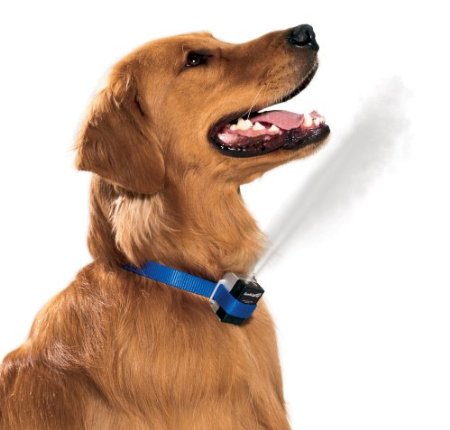How to Stop Dog Barking
Why would you want to stop dog barking?
After all, barking is a part of a dog's natural and normal communication process.
They bark for a lot of reasons, such as when they hear noises or when they see strangers.
That is why dogs make perfect security guides.
But sometimes dogs bark outside of these reasons, and is during those annoying and irritating episodes that, yes, you will want to quieten your dog down.
I’ve no idea how they measure this but apparently 30% of dogs bark in appropriately and excessively. This can greatly affect their relationship with their owners.

As a dog owner, you can take steps to control and stop dog barking. But before that, you must understand the reasons behind such behaviours.
Reasons Why Dogs Bark
One of the main reasons why dogs bark is to alert or warn the owners of the presence of danger. Aside from that, they bark when they are at play, when they feel excited, lonely, anxious, and when they are seeking for attention.
Dogs bark for these reasons and they do not intend to annoy people.
Different Treatments and Solutions
Here are the things that you can do in order to control and stop dog barking:
* Give your dog a comfortable place to relax. Make sure they are well fed with food and water.
* Don't shout back at your dog. Shouting at them will only make the problem worse. They may think that you like what they are doing because you are joining them.
* Use only one-word commands and stick to those. Dogs are smart but they can only easily recognize few simple words compared to long words and sentences. Narrow down your messages to single words or commands such as "Enough!" or "Hush!", while using them in a firm, strong and convincing tone.
* Look forcefully into their eyes. When commanding your dog to stop barking, it is best to look at your dog in the eye and keep your stare without a blink.
* When your dog finally stops barking, praise the behaviour by saying "Good dog".
* Reward your dog with a treat every time they stop barking. Make sure you reward them after they have stopped barking and not before because they may think that you are rewarding them for barking.
* Another common technique on how to stop dog barking is by the use of noisemakers such as whistles. You can actually stop them from barking by startling them with a sudden and high-pitched noise. Musical instruments such as triangles and gongs are also found to be effective.
Stop Barking Dog Collars

A Citronella Dog Bark Collar Can Help Train a Dog Not to Bark with a Gentle Negative Message
Shown: Petsafe Citronella Anti-Bark Dog Collar from Amazon
Some owners like to try an approach where a gentle citronella spray or air spray attached to the dog collar is set off when the dog barks. It is a sufficient
deterrent to excessive barking. It is recommended for use with dogs
that weight greater than 6 pounds and that are at least 6 months in age. The product can be effective for addressing and stopping nuisance barking both outdoors and indoors.
Dog Bark Training Takes Time and Patience
If none works, ask for advices from dog experts such as animal behaviourist, trainers, and your vet. Sometimes a dog that suffers from problems such as separation anxiety needs a calming prescription or natural homeopathic supplement such as Pet Calm in order to be receptive to training.
Changing the barking behaviour of your dog may take some time, so you must learn to be patient with your dog.
You need to take it slow and allow changes to happen one step at a time. Rushing your dog will not do them any good and the things that they learn may not be retained for a long time.
Also, remember that negative reinforcement such as physical punishment must be kept to a minimum, as it will only cause the dog to develop fear and anxiety, which can lead to an unhealthy relationship with them.
Just stay calm and take your time. In the end, you will see your dog transformed into that well-behaved (and quiet) dog that you had always wanted.
Related Articles
More On How To Aontrol And Stop Dog Barking
Chewing Behaviour
Dog Seperation Anxiety
Labrador Behaviour Problems